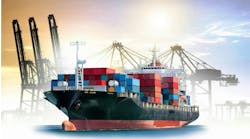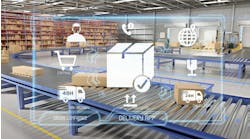Cost-cutting strategies are important to businesses during the best of economic times. During times such as these, they can be crucial to success.
Increasing income is a given when it comes to business goals. Searching for ways to grow business, penetrate new markets and reach a larger segment of a company’s demographic are always important, and smart businesses should work in these areas constantly. But cost-saving measures are just as important—especially when the economy is slowly recovering from a recession.
Ongoing cost-saving strategies can help systematically improve a company’s bottom line. And experts say sustainability and supply chain management are two areas managers should examine in today’s economy.
Corporate responsibility: a pathway to better profits
Corporate responsibility is one way to cut costs. Becoming a good corporate citizen—which can include everything from how the company treats workers to adopting sustainability strategies — can lead to cost-savings by helping attract better talent to the company who will stay around for an extended period of time. The savings in the recruiting process alone is beneficial, but the additional productivity of fewer learning curves and a greater focus on process improvements can heavily affect the bottom line. Sustainability programs can save money by cutting energy costs and making a business’ operations more efficient, as well.
Matthew Tueth, who holds a doctorate in environmental science from Oklahoma State University and has designed sustainability in business classes for Aquinas College in Grand Rapids, Mich., lists several ways to measure a business’ commitment to “green” initiatives:
Triple bottom line. Success is based not just on profits, but also on achievements in preserving the environment and bettering humanity, especially the lives of employees and the company’s local community.
Biomimicry. Products are designed based on models and lessons from nature.
Products Service System (PSS). A PSS is pre-designed system of products, service, supporting infrastructures and necessary networks that is a so-called dematerialized solution to consumer preferences and needs. It has also been defined as a "self-learning" system, one of whose goals is continual improvement.
Solar, wind, geothermal and ocean energy. The company uses these sources of energy—exclusively, if possible.
Locally based organizations and economies. The company is locally owned and operated.
Continuous improvement. The company is constantly looking for ways to improve sustainability efforts.
Savings in SCM
Streamlining and simplifying are the key points to remember with supply chain management.
SCM is intended to maximize profits and efficiencies, essentially cutting costs along the supply chain and helping the bottom line. Some companies report large savings through supply chain management techniques.
Among those companies is John Deere, which worked with software company SmartOps to improve supply chain management. One piece of the strategy involves software that recommends the stocking level at warehouses, which SmartOps says led to $1 billion in inventory reductions and boosted on-time shipping from 63% to 92% for the maker of agricultural and construction equipment.
Management consulting firm Accenture, which worked with Munich, Germany-based Siemens to improve its supply chain, reported it saved Siemens $5 million by sharply reducing errors in forecasting customer demand.
What’s more, Nike has reported gains in its Brazilian operations after working with logistics giant DHL Supply Chain to streamline procedures and cut supply chain costs while also improving delivery and service time.
Sustainability and SCM are rarely the first place companies turn to when looking for ways to trim costs. But both areas offer saving opportunities that can make a lasting difference to the bottom line.
Jason Monaghan writes for University Alliance on sustainability, supply chain management and other topics. Contact him at [email protected].








